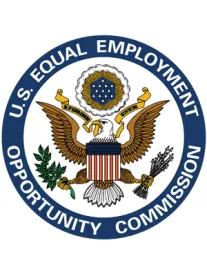On June 11, 2020, the U.S. Equal Employment Opportunity Commission (EEOC) issued an update to its COVID-19 technical assistance publication. The update provides new guidance for employers on the topics of accommodating employees with family members at high risk of severe illness from COVID-19, handling pandemic-related harassment, caregiver responsibilities, and pregnancy issues. Here is what you need to know:
Accommodating Employees With High-Risk Family Members
The EEOC affirms that employers are not required to provide accommodations to employees with family members who are at high risk for COVID-19 due to a family member’s underlying medical condition, stating that the “ADA [Americans with Disabilities Act] does not require that an employer accommodate an employee without a disability based on the disability-related needs of a family member or other person with whom she is associated.”
Safeguarding Against Harassment
The EEOC added additional recommendations for employers on how to handle pandemic-related harassment, particularly harassment directed against employees “who are or are perceived to be of Chinese or other Asian national origin.” The EEOC recommends that employers ensure managers are “alert to demeaning, derogatory, or hostile remarks” directed to such employees and that employers train managers on how to recognize harassment and resolve issues before they “rise to the level of unlawful discrimination.” The EEOC recommends that employers “send a reminder to the entire workforce noting Title VII’s prohibitions on harassment, reminding employees that harassment will not be tolerated, and inviting anyone who experiences or witnesses workplace harassment to report it to management.” In addition, the guidance states that employers should be alert to the same forms of harassment in remote working arrangements, such as harassment through emails, social media, or video conferences.
Inviting Advanced Discussion on Accommodations or Flexible Work Arrangements
The EEOC suggests that employers invite employees to request accommodations prior to returning to the workplace. The EEOC notes that the ADA permits employers “to make information available in advance to all employees about who to contact – if they wish – to request accommodation for a disability that they may need upon return to the workplace, even if no date has been announced for their return.” [Emphasis in original.] The EEOC suggests that an employer include in the notice a list of the medical conditions identified by the Centers for Disease Control and Prevention (CDC) as placing people at a higher risk for COVID-19 and state that “the employer is willing to consider on a case-by-case basis any requests from employees who have these or other medical conditions.” The EEOC also notes that the employer should ensure those who are designated to receive such requests are knowledgeable on how to handle them in accordance with federal anti-discrimination laws.
Accommodations for Employee Screening
As to employees entering the worksite who request an alternative method of screening due to a medical condition, the EEOC observes that such a request should be treated as a request for a reasonable accommodation under the ADA and that the employer “should proceed as it would for any other request for accommodation under the ADA.” The EEOC states that the employer may ask the employee for information to establish the employee’s condition is a disability (if it is not obvious or already known) and to determine what specific limitations may require an accommodation, including by requesting medical documentation when necessary. The EEOC notes that the same ADA accommodations apply to this situation, such that employers should determine if they can provide an effective reasonable accommodation without an undue hardship. Similarly, the EEOC states that an alternative method of screening may be required as a religious accommodation under Title VII of the Civil Rights Act of 1964.
Age Discrimination
The EEOC added a new section to its guidance on the topic of age discrimination, noting that “[t]he CDC has explained that individuals age 65 and older are at higher risk for a severe case of COVID-19” The EEOC notes that the Age Discrimination in Employment Act (ADEA) prohibits discrimination against employees age 40 or older and therefore prohibits an employer “from involuntarily excluding an individual from the workplace based on his or her being 65 or older, even if the employer acted for benevolent reasons such as protecting the employee due to higher risk of severe illness from COVID-19.” The EEOC points out that the ADEA does not require accommodations on account of age, unlike disability accommodations required by the ADA, but employers may voluntarily provide accommodations to employees age 65 and older “even if it results in younger workers ages 40-64 being treated less favorably based on age in comparison.”
Caregivers and Family Responsibilities
The EEOC also added a new section pertaining to caregiver and family responsibilities and addressing whether there are “sex discrimination considerations” when an employer provides remote working arrangements or other benefits to employees with school-aged children affected by pandemic-related school closures. The EEOC states that employers may provide any flexible arrangements or benefits, so long as employees are not treated differently based on sex or other protected characteristics. For example, employers may not provide more favorable treatment to female parents compared to male parents because of the employer’s “gender-based assumption about who may have caretaking responsibilities for children.”
Pregnancy
Finally, the EEOC added a new section pertaining to pregnancy. The EEOC reminds employers that they may not exclude an employee from the workplace involuntarily due to pregnancy, even when motivated by benevolent concerns. The EEOC also notes that pregnant employees may be entitled to accommodations under the ADA due to pregnancy-related medical conditions, and that Title VII may require providing the same type of job modifications or flexible work arrangements to pregnant employees as are afforded to other employees similarly unable to work.




 />i
/>i

